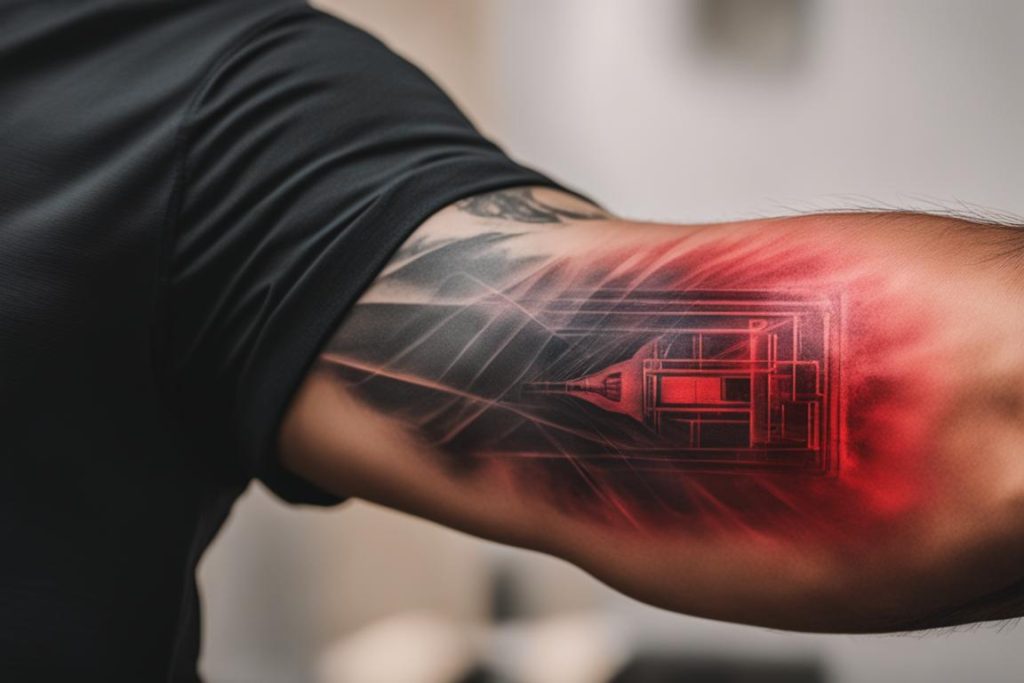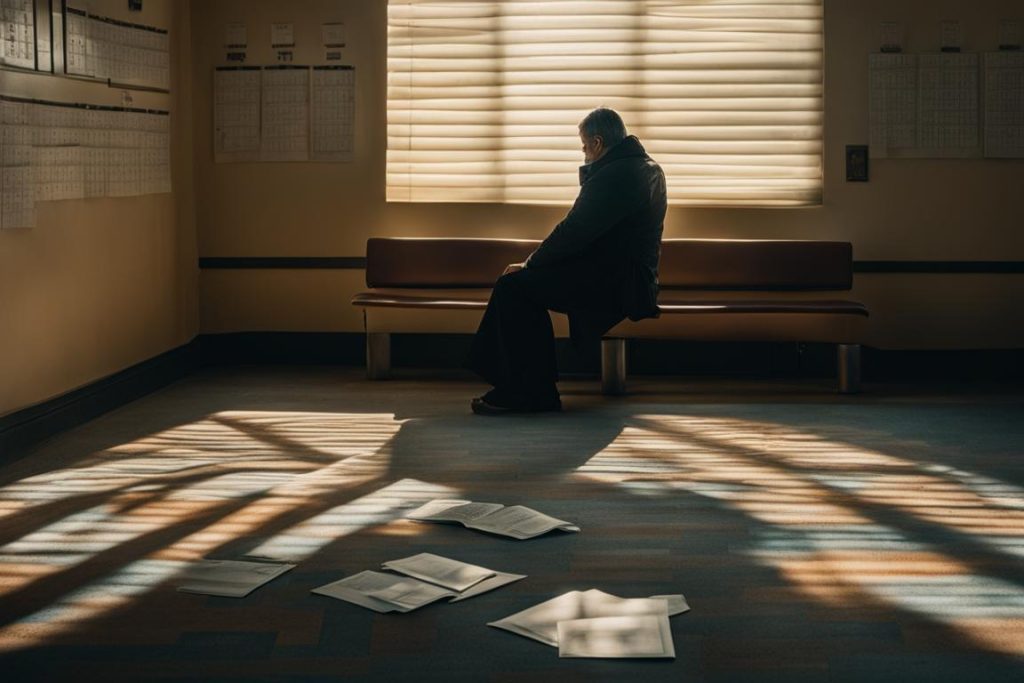Have you ever woken up from a dream filled with regrets about getting a tattoo? Trust me, you’re not alone. Many of us experience this unsettling feeling, and it can leave us questioning our past decisions. Dreams about tattoo regret are a reflection of unresolved emotions and doubts that we may have about our tattoos.
Understanding the messages behind these dreams can be instrumental in confronting our feelings and finding peace with our tattoo choices. In this article, we will explore the meaning of tattoo regret dreams, the factors contributing to tattoo regret, and effective ways to cope with regret and anxiety. We will also delve into the world of tattoo removal and the importance of reflection and decision-making in avoiding future regrets.
Tattoo Regrets in Dreams
- Many people experience regret after getting a tattoo, which can manifest in dreams.
- Dreams about tattoo regret can indicate unresolved emotions and doubts about past decisions.
- Factors contributing to tattoo regret include spontaneous decisions, poor tattoo quality or design, and changes in personal preferences or lifestyle.
- To lower the risk of tattoo regret, careful consideration of tattoo location, style, and personal meaning is essential.
- If tattoo regret persists, tattoo removal options such as laser treatments, mechanical dermabrasion, and surgical removal can be considered.
Now let’s delve deeper into the meaning of these dreams and explore how we can navigate through tattoo regret.
Exploring the Meaning of Tattoo Regret Dreams
Dreams have long fascinated and perplexed humans, with their symbolic language and hidden meanings. When it comes to dreams about tattoo regret, the interpretation can vary based on personal experiences and emotions. These dreams often reflect unresolved feelings of regret over past decisions or the need for self-expression.
Recurring nightmares about tattoo regret may indicate difficulties in letting go of the past or conflicts between personal identity and societal expectations. It’s essential to pay attention to the specific context and symbols in the dream, as they can provide valuable insights into the underlying emotions behind tattoo regret. Maybe the dream reveals a desire for change or a longing for personal growth.
One way to gain a deeper understanding of tattoo regret dreams is to keep a dream journal. Write down the details of the dream, including any emotions, symbols, or recurring patterns. Reflecting on these dreams and discussing them with a trusted friend, therapist, or support group can help in the process of self-discovery and healing.
The dream images are the language of the soul. – Carl Jung
By exploring the meaning behind tattoo regret dreams, individuals can gain insights into their emotions and find ways to address their feelings of regret. Dream interpretation is a personal and introspective journey, and it can guide individuals towards self-acceptance and a deeper understanding of their tattoo choices.
Understanding Tattoo Symbolism
When deciphering the symbolism within tattoo regret dreams, it’s important to consider the significance of tattoos in different cultures and personal experiences. Tattoos have been used throughout history to express identity, beliefs, and life experiences.
For example, a dream about regretting a tattoo on the forearm could symbolize a desire to hide one’s true self or past mistakes from the world. On the other hand, regretting a tattoo on the heart could represent unresolved emotional pain or a longing for love and connection.
| Tattoo Symbol | Meaning |
|---|---|
| Anchor | Strength, stability, and grounding |
| Butterfly | Transformation, growth, and freedom |
| Phoenix | Rebirth, resilience, and overcoming challenges |
| Feather | Freedom, spirituality, and protection |
Tattoo symbolism is highly personal, and the meaning behind a tattoo can be unique to each individual. Exploring the symbolism of tattoos within the context of dreams can provide a deeper understanding of one’s emotions and regrets surrounding certain tattoo choices.
Factors Contributing to Tattoo Regret
When it comes to tattoo regret, there are several factors that contribute to these feelings. Statistics show that a significant percentage of individuals experience regret over their tattoos. Let’s explore some of the common reasons behind this regret and how they can influence a person’s overall satisfaction with their tattoo choices.
One important factor is tattoo placement. The location of a tattoo on the body can greatly impact a person’s feelings of regret. For example, tattoos on highly visible areas such as the face, neck, or hands may lead to more regret, especially if they hinder job prospects or personal relationships.
Another factor is the style of the tattoo. Trends in tattoo artistry can change over time, and what may have been considered cool or trendy at one point may no longer be as appealing. This can lead to feelings of regret if a person feels their tattoo is outdated or no longer reflects their personal style.
Spontaneous decisions also play a role in tattoo regret. Making impulsive choices without adequate consideration can increase the likelihood of future regret. It is important to take the time to thoroughly think through the design, meaning, and long-term implications of a tattoo before getting inked.
| Factors Contributing to Tattoo Regret | Percentage |
|---|---|
| Tattoo placement | 42% |
| Tattoo style | 35% |
| Spontaneous decisions | 23% |
| Lack of meaningfulness | 18% |
| Poor quality or design | 15% |
As the table above shows, tattoo placement is the most common reason for regret, with 42% of individuals citing it as a contributing factor. Tattoo style follows closely behind at 35%, while spontaneous decisions account for 23% of tattoo regrets. Lack of meaningfulness, poor quality or design, and other factors also play a role in the overall regret experienced by individuals.
Lowering the Risk of Tattoo Regret
When it comes to getting a tattoo, thoughtful decision-making can play a crucial role in minimizing the risk of regret. Consideration should be given to the tattoo location, style, and personal meaning to ensure long-lasting satisfaction. Here are some key factors to keep in mind:
Tattoo Location
The location of your tattoo can significantly impact your overall satisfaction. Some areas of the body may not heal well or may be more prone to fading over time. It’s essential to choose a location that allows for proper visibility and maintenance, while also considering your personal comfort and aesthetics.
Tattoo Style
The style of the tattoo should reflect your personal taste and preferences. It’s important to choose a timeless design that you’ll continue to appreciate in the long run. Research different tattoo styles and consult with a professional tattoo artist to ensure the style aligns with your vision.
Personal Meaning
A tattoo with personal meaning can enhance your connection to the artwork and reduce the likelihood of regret. Take the time to reflect on the symbolism and significance behind the design. Whether it represents a cherished memory, a meaningful quote, or a symbol of your identity, a tattoo with personal meaning can provide a deeper sense of satisfaction.
By carefully considering the tattoo location, style, and personal meaning, you can make an informed decision and greatly reduce the chances of regret. Remember, tattoos are a permanent form of self-expression, and it’s essential to approach the process with thoughtful consideration and intention.
Coping with Regret and Anxiety
Experiencing immediate tattoo regret can be a distressing emotion. It’s not uncommon for individuals to feel anxious or overwhelmed after getting a tattoo. However, there are several strategies and options available to cope with these difficult emotions and find self-acceptance.
One way to address immediate tattoo regret is to allow yourself time to adjust and adapt to the new appearance. Remember that it takes time to get used to any significant change in our lives, including a tattoo. Give yourself the space to process your emotions, and over time, you may find that the initial anxiety diminishes.
Remember, it’s okay to feel regret or second thoughts about a decision. It’s a natural human response. The key is to find ways to manage these feelings and ultimately make peace with your tattoo choices.
Seeking support from loved ones can also be helpful in coping with tattoo regret. Talking openly about your feelings with trusted friends or family members can provide an outlet for your emotions and offer a fresh perspective. Their support can help ease your anxiety and remind you that you are not alone in your experience.
If the regret persists and you are still unhappy with your tattoo, there are cover-up options available. Consulting a professional tattoo artist who specializes in cover-ups can provide you with insights and creative solutions to modify or enhance your existing tattoo. They can work with you to design a new tattoo that incorporates elements of your old one, ensuring that you feel more satisfied with the final result.
Ultimately, finding self-acceptance is crucial in dealing with tattoo regret and anxiety. Embrace your tattoo as a part of your personal journey and growth. Remind yourself that it represents who you were in that specific moment of your life. Over time, you may find that instead of regret, your tattoo becomes a symbol of self-expression, individuality, and personal stories.

Laser Tattoo Removal vs. Mechanical Dermabrasion – A Comparison
| Method | Laser Tattoo Removal | Mechanical Dermabrasion |
|---|---|---|
| Effectiveness | Highly effective in breaking down tattoo ink | Effective, but may require multiple sessions for complete removal |
| Recovery Time | Minimal downtime, usually a few days of redness and swelling | Longer recovery time, may require weeks for the skin to heal |
| Pain Level | Moderate discomfort during treatment, usually manageable with numbing cream or local anesthesia | More painful compared to laser removal, local anesthesia is often used |
| Cost | Generally more expensive compared to other methods | Relatively more affordable compared to laser removal |
It is crucial to consult with a professional to determine the best tattoo removal option based on individual factors such as tattoo size, location, and personal preferences. By understanding the different removal methods available and carefully considering the associated factors, individuals can make an informed decision and take the necessary steps to address their tattoo regret.
Seeking Professional Help for Tattoo Removal
When it comes to tattoo removal, it is crucial to seek professional help to ensure safe and effective results. Consulting a board-certified dermatologist is essential to assess the tattoo’s characteristics and determine the most appropriate removal method. Before undergoing any tattoo removal procedure, it is important to wait until the tattoo has completely healed, typically around six to eight weeks. This waiting period allows the skin to recover and reduces the risk of complications during the removal process.
During a consultation with a dermatologist, they will evaluate the size, color, and location of the tattoo to develop a personalized treatment plan. They will explain the different removal options available, including laser treatments, mechanical dermabrasion, or surgical removal, depending on the specific tattoo and individual circumstances. The dermatologist will also discuss the expected number of sessions required for complete tattoo removal and any potential side effects or risks involved.
In some cases, tattoo regret can lead to extreme anxiety or depression. If tattoo regret is causing significant emotional distress, it may be beneficial to seek mental health support. A mental health professional can provide guidance and support throughout the tattoo removal process, helping individuals address the underlying emotions associated with tattoo regret and develop coping strategies to manage anxiety or depression. Combining medical and mental health expertise can contribute to a more comprehensive and holistic approach to dealing with tattoo regret.

Expert Tip: Take Your Time
Removing a tattoo is a significant decision, just like getting one. It is important to take your time and carefully consider all your options. Consult a dermatologist to determine the best approach for your specific tattoo. And remember, seeking support from a mental health professional can be incredibly helpful if you are dealing with emotional distress related to tattoo regret.
Pros and Cons of Different Tattoo Removal Methods
| Tattoo Removal Method | Pros | Cons |
|---|---|---|
| Laser Tattoo Removal | Highly effective for many tattoo colors and types, minimal scarring, non-invasive | Multiple sessions required, can be costly, may cause temporary skin discoloration or irritation |
| Mechanical Dermabrasion | Effective for certain tattoo types, relatively low cost | Potential scarring, longer recovery time, not suitable for all skin types |
| Surgical Removal | Immediate removal, suitable for large or deep tattoos | May result in visible scars, longer recovery time, higher risk of complications |
The Importance of Reflection and Decision-Making
When it comes to getting a tattoo, thoughtful decision-making plays a crucial role in ensuring future satisfaction and personal growth. Rushing into a tattoo without taking the time to reflect can lead to regret and disappointment. By embracing a waiting period and considering long-term implications, individuals can make choices that align with their values and preferences.
During this reflection period, it’s essential to ask oneself important questions like: What is the significance of this tattoo? Will it still hold meaning to me years from now? How does it fit into my overall personal journey? Engaging in such introspection can provide valuable insights and guide decision-making.
By taking the time to reflect, individuals can also explore alternative options such as temporary tattoos or henna designs before committing to a permanent tattoo. These alternatives allow for experimentation and can help solidify personal preferences and choices.
Exploring Personal Growth
Thoughtful decision-making goes hand in hand with personal growth. It involves considering not just the immediate desire for a tattoo, but also how it fits into one’s evolving identity and life path. As we grow and change, our tastes, values, and priorities may also shift.
By approaching tattoo decisions with a growth mindset, individuals can navigate potential regret with acceptance and a willingness to learn. Even if regret arises later, it can serve as a reminder of personal growth and the importance of embracing our past choices.
Cultivating Self-Acceptance
Tattoos are deeply personal expressions of identity, and they should be celebrated as such. Embracing the tattoo as a part of one’s personal journey fosters self-acceptance and can alleviate potential regret. Regardless of societal expectations or changing opinions, accepting and embracing one’s tattoos can lead to a greater sense of self-confidence and authenticity.
However, it’s essential to remember that self-acceptance is a journey in itself. If tattoo regret persists or causes significant distress, seeking professional help from a mental health provider can provide additional support and guidance.
When it comes to tattoos, thoughtful decision-making and reflection are paramount. Taking the time to consider the significance and long-term implications of a tattoo can reduce the likelihood of regret and promote personal growth. Embracing tattoos as part of one’s journey and cultivating self-acceptance can lead to a greater sense of authenticity and confidence. By prioritizing thoughtful decision-making, individuals can navigate the tattoo process with peace of mind and satisfaction.
Conclusion
Tattoo regrets are a common experience that many individuals go through. Dreaming about tattoo regret can be a way for our minds to process the emotions and doubts we may have about our past decisions. By exploring the meaning behind these dreams and understanding the factors contributing to tattoo regret, we can find ways to cope with our emotions and make peace with our tattoo choices.
One important aspect in minimizing the likelihood of regret is thoughtful decision-making. Taking the time to reflect on our personal motivations, considering the long-term implications, and waiting periods can help us make choices that align with our values and preferences. This will ultimately lead to a more satisfying tattoo experience in the future.
Additionally, self-acceptance plays a crucial role in dealing with tattoo regrets. Embracing our tattoos as a part of our personal journey, even if regret arises, can lead to personal growth and acceptance. It is important to remember that our tattoos do not define us, and we have the power to shape our own self-identity beyond our physical appearances.
If tattoo regret is causing extreme anxiety or depression, it is essential to seek professional help. Consulting a board-certified dermatologist for tattoo removal ensures safe and effective procedures. Mental health professionals can also provide valuable support and guidance throughout the removal process, helping us navigate the emotional aspects of tattoo regret.
FAQ
Can dreams about tattoo regret indicate unresolved emotions and doubts?
Yes, dreams about tattoo regret may indicate unresolved emotions and doubts about past decisions. Understanding the messages behind these dreams can help individuals confront their feelings and make peace with their tattoo choices.
What do dreams about tattoo regret mean?
Dreams about tattoo regret often have different meanings based on personal experiences and emotions. They can reflect regret over a past decision, the need for self-expression, difficulties in letting go of the past, or conflicts between personal identity and societal expectations.
Why do people experience regret over their tattoos?
There are several common reasons for tattoo regret, including getting tattoos at a young age, changes in personal preferences or lifestyle, getting names of ex-partners, poor tattoo quality or design, lack of meaningfulness, and spontaneous decisions without adequate consideration.
How can I lower the chances of tattoo regret?
To lower the chances of tattoo regret, it is important to carefully consider the location, style, and personal meaning of the tattoo. Choosing a timeless design and meaningful symbolism, avoiding impulsive decisions, and seeking the advice of trusted professionals can help minimize the risk of regret.
What can I do if I experience immediate regret after getting a tattoo?
It is common to experience anxiety or immediate regret after getting a tattoo. These emotions can be addressed by allowing oneself time to adjust and adapt to the new appearance, seeking support from loved ones, exploring cover-up options if desired, and developing self-acceptance.
What are the options for tattoo removal?
Tattoo removal options include laser treatments, mechanical dermabrasion, and surgical removal. Laser treatments are the most common and effective method, using different wavelengths to break down the tattoo ink. The cost of tattoo removal varies depending on factors such as tattoo size, complexity, and the expertise of the professional.
When should I consider tattoo removal?
It is important to wait until the tattoo has completely healed, usually six to eight weeks, before considering tattoo removal. Consulting a board-certified dermatologist is essential to ensure safe and effective removal. If tattoo regret is causing extreme anxiety or depression, seeking help from a mental health professional can provide additional support and guidance.
How can I avoid tattoo regret in the future?
Reflecting on personal motivations and taking the time to make thoughtful decisions before getting a tattoo can significantly reduce the chances of regret. Waiting periods and considering long-term implications can help individuals make choices that align with their values and preferences. Embracing the tattoo as a part of one’s personal journey, even if regret arises, can lead to personal growth and acceptance.




